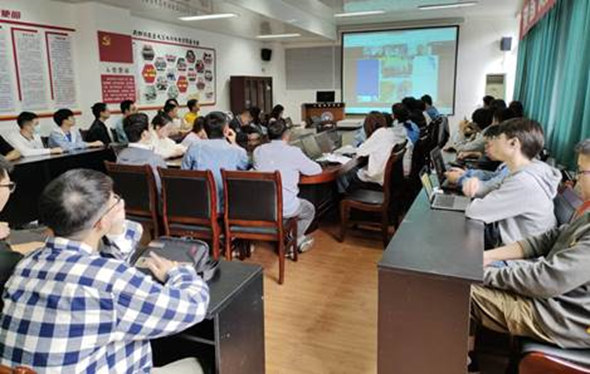2022-09-30 19:45:21 Authors: Wang Yin Reviewer:Hou Li
On September 27-29, invited by the Middle East Research Center for Modern Agriculture, College of Agriculture and College of Water Resources and Hydropower, Prof. Aaron Fait, a senior Israeli expert on agriculture and biotechnology in arid regions and the Maxs and Rochelle Etingin Chair of Desert Research, gave two excellent online lectures on "Agricultural Applications of Metabolomics" and "Fruit Development The lectures were given by Professor Aaron Fait, the Maxs and Rochelle Etingin Chair in Desert Research, to over 200 students and faculty at Sichuan Agricultural University, Chengdu University and Guizhou University on the topics of "Metabolomics in Agriculture" and "Fruit Development and Climate, Genetics and Management". The lectures were hosted by Associate Professor Ying Wang, a young faculty member of the School of Water Resources and Hydropower.


The lecture focused on the application of metabolomics in the origin and quality traceability of agricultural products, such as red wine, and the use of metabolomics as a tool to help select crop varieties with better regional environmental specificity. Professor Aaron Fait suggested that metabolomics has a great potential to serve as a "bridge" between microscopic metabolic changes and macroscopic agronomic traits, providing more ideas to facilitate the development of modern agriculture. At the end of the presentation, Prof. Aaron Fait patiently answered questions from the audience and had a lively discussion with students and faculty on the application of metabolomics research in the future development of agriculture.


Lecturer Introduction: Aaron Fait, Senior Research Specialist in Agriculture and Biotechnology in Arid Regions, Ben-Gurion University of the Negev, Israel. He has long been involved in research on metabolic network regulation, metabolic monitoring of seed development and germination, and grape response to stress. He has published SCI papers as first author and corresponding author in many international prestigious journals such as PNAS, Trends in Plant Science, Trends in Biotechnology, PLoS Genetics, etc., with cumulative impact The cumulative impact of these papers is 120.